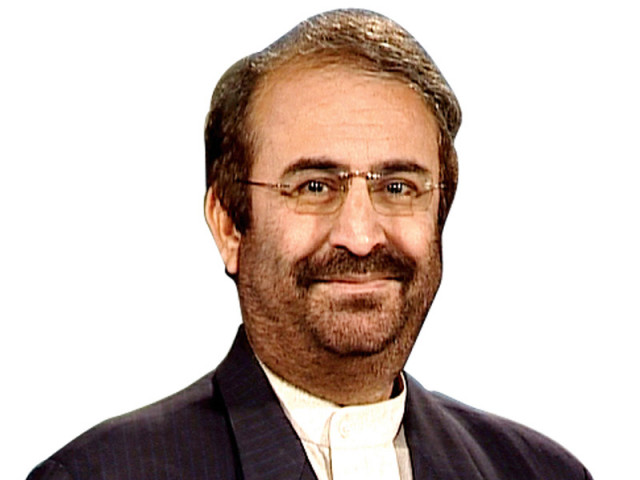Stalemate stalls consensus cabinet in Kabul
Presidential spokesman insists deadline has not expired and efforts are under way to nominate ministers

Over the past few weeks, Afghan President Ashraf Ghani and Chief Executive Dr Abdullah Abdullah have been engaged in consultations to form a consensus cabinet. As yet both sides have not reached any accord on the allocation of ministries.
However, presidential spokesman Nazifullah Salarzai has attempted to dispel this impression. He insists Ghani’s deadline to install a cabinet has not expired and efforts are under way to nominate ministers within the stipulated period. Ghani, who took oath of office on September 30 in the first-ever democratic transition in Afghanistan’s history, has yet to make appointments on a number of important posts.
Speaking to a private television channel, Salarzai said the Afghan president has time to meet the deadline as he had promised to form the cabinet within 45 days. The presidential spokesperson’s clarification seems to have put to rest reports and speculations about differences between Ghani and Abdullah delaying the formation of a cabinet.
Delays in cabinet formation is cited as one of the key challenges faced by Ghani as he will have to accommodate Abdullah’s team in their national unity government.
Demanding a stake
The new Afghan leader is also being advised to accommodate other parties and influential leaders who have supported both teams. Some former Taliban leaders – few of whom are now based in Afghanistan – also expect to get some stake in the new setup on the basis of their previous background. Taliban spokesman Zabihullah Mujahid, however, has clarified these former leaders do not represent the Taliban. As a result, this cannot be termed as the decision of the Taliban.
Agha Jan Motasim, the former chief of the Taliban’s political council, is a strong proponent of intra-Afghan dialogue. He is now in contact with the Afghan government and is consistently trying to unite former Taliban leaders through his own movement which was launched in 2013 in the UAE.
Taking stock
According to the agreements reached between both sides, members of the cabinet will be introduced by both camps. Moreover, all ethnic groups in Afghanistan will be involved in the new cabinet.
Currently, all ministers from Hamid Karzai’s government are serving as acting ministers. The chief executive has presided over several cabinet sessions of the acting ministers since the national unity government was formed.
The Afghan media has reported President Ghani and Dr Abdullah met again on Wednesday to iron out differences over formation of the cabinet. However, no final decision has been taken on the matter as yet.
Meanwhile, a joint committee of both teams is working on implementing the political agreement. Abdul Sattar Murad, a member of the committee, has revealed that both sides are engaged in consultations and a tangible agreement will be reached in the near future.
Inducting professionals
Afghan analysts have warned the new leaders to avoid appointing ministers on a strictly political basis as this approach could create complications. They have advised the president and chief executive to appoint qualified and professional persons in the cabinet.
Speaking to Tolo TV, Malik Setez, a political analyst, said if the leadership of the national unity government tries to appoint the new cabinet on the basis of political commitments it will face major challenges ahead. On the contrary, if the cabinet is formed on the basis of experience, accountability and transparency, it will prove to be a long-lasting and competent body.
Nonetheless, the joint team of Ghani and Abdullah are confident they will soon reach an agreement on forming a cabinet and allocate government posts.
Electoral reforms
The new government is faced with yet another challenging task; introducing electoral reforms to avoid fraud before parliamentary elections are held in five months.
Political observers and the media believe incidence of fraud in the presidential elections has shaken the trust of the people. They have repeatedly advised the government to introduce electoral reforms to guarantee free and fair elections. Electoral reforms are seen as the only strategy to restore the trust of the voters.
According to an editorial in Mandegar newspaper, fraud and mismanagement in presidential elections has discredited the electoral process and undermined democracy. It could adversely impact the turnout in the upcoming parliamentary elections.
Since parliamentary elections are to be held in April, the government is under immense pressure to take immediate steps to prevent electoral fraud and avoid the level of mismanagement witnessed in the presidential elections. There are also pressing concerns of delays in holding of the parliamentary polls if the president fails to introduce electoral reforms promised to the nation.
Published in The Express Tribune, November 8th, 2014.



















COMMENTS
Comments are moderated and generally will be posted if they are on-topic and not abusive.
For more information, please see our Comments FAQ